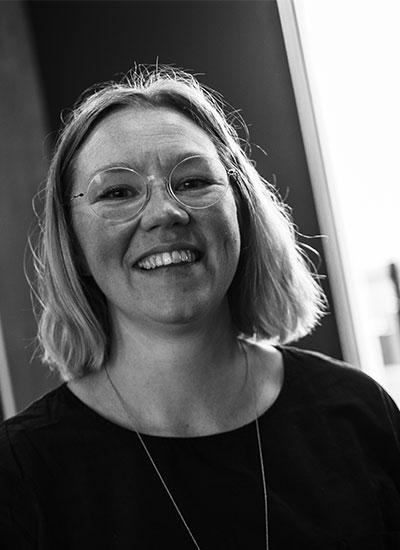Alumni portrait - Silje Strøm Solberg - NTNU Alumni
- About NTNU Alumni
-
Alumni portraits
- Rune Sørås
- Endre Jo Reite
- Joachim Kjesbu
- Inger Anne Tøndel
- Marius Herberg
- Mari Liavaag Holm
- Timothy Afful-Koomson
- Linda L. Aase
- Christer Aannestad
- Guri Melby
- Rosa Puentes
- José Ramón Sierra Blasco
- Aleksander Oldrup Jensen
- Silje Strøm Solberg
- Ane Ryttervoll Kvamshagen
- Fredrik Mordal Hessen
- Hans Erik Eidem
- Kristin Mjelde Solevag
- Malin Friman
- Øyvind Storesund Hetland
- Yngvild Egenes
- Monica Havskjold
- Ingrid Sørum Melaaen
- Bjørn Simonsen
- Cecile Barrere
- Remi Eriksen
- Kristina Brend
- Celine Sandberg
- Magnus Arveng
- Hilde Tonne
- Vilde Coward
- Sonia Ahmadi
- Contact
- Library services
- Privacy (GDPR)
- FAQ Alumni
Silje Strøm Solberg
Silje Strøm Solberg
Position: Co-owner of Ducky
Education: Master of Architecture
Creating a toolbox for the green movement
Everyone can contribute to lower greenhouse gas emissions - every single day. Silje Strøm Solberg is the founder of Ducky who has developed a toolbox that shows us how and what we can do.

By 2050 Norway is set to become a low-emission society. So, what does it take to create change? Silje Strøm Solberg asked herself the same question while she was tired of seeing politicians, business leaders and senior executives leaving climate targets and the green movement on hold. Together with two co-workers Solberg started the learning platform Ducky in 2015, which provides companies, organizations, local authorities - as well as you and me - with specific tools showing us how we can act to achieve the climate goals.
- I became acutely aware of sustainability as a theme during my studies and explored some on my own, says Solberg.
Negative experience is also useful experience
An important reason why Solberg wanted to study for a master's in architecture at NTNU was the good exchange opportunities that exist through the Erasmus program. Although her stay in Germany was not quite what she envisioned, it became important for later decisions
- After the third year I went to work at a small architectural office in Germany as part of the exchange program. I needed a break and to let the first three years sink in. It gave me perspective, especially on what it is like to be employed in Norway versus in another country, there is much less hierarchy in Norway. Those six months I became aware that all experience is good experience - including the negative ones. For example, I decided I did not want to spend my time drawing ceiling details for rich oil sheiks.
Less concerned with grades
- What is the most important thing you have gained from what you learnt at NTNU?
- That's a good question! It's good to be able to reflect a bit and look back. I am glad I was given the opportunity to refine the language of architecture and practice the ability of designing rooms. But what I find most important is probably how to work with the creative processes, and how to handle complex challenges. This is universal knowledge needed beyond being an architect.
Solberg dug deep into the user-centred method, where she was inspired by students from Industrial Design.
- When I returned from the exchange year, I realised that being a student gave me a space to explore things I was committed to - rather than focusing on grades. Working centrally in designing architecture became a matter of course to me, as an important method of understanding what the physical environment must support, especially when facing social change.
Prior to starting Ducky, she worked for SINTEF for three years where she was developing a textbook for user-centred methodology in architecture.
Organised high school championships
Today Ducky has 18 employees. The head office is in Trondheim, but they also have employees in Oslo and in England. Solberg describes a normal working day as very varied. One day she may be working in the project group all day, another day she may be doing user testing of their solution.
- All communication and documentation are done digitally in the company, with several offices, so in this case the Covid-19 situation has not been a major change for us.
There is a lot of psychology in what they are doing, understanding what is going to make people change their habits, attitudes and not at least actions are fundamental. Among other things, they have arranged the National Climate Championship for high schools for three consecutive years,
Totally in line with NTNU's vision
- What motivates you in your work?
- In addition to our goal of contributing to a sustainable world and the green movement, it is to be able to work in efficient teams with dedicated people. It is also very motivating to work on improving the organisation, to find better ways to work when something is not working well.
But is the world moving in the right direction when it comes to awareness of the climate and the environment? Solberg believes so, she noticed a change after the Paris Agreement was signed.
- We are contacted by organisations and companies from all over the world. There is a demand for knowledge of what can be done and how. Right now, Mizuho, Japan's largest bank, is testing our solution to raise awareness and bring down the biological footprint.
Thus, NTNU's vision of "knowledge for a better world" fits perfectly for Solberg and Ducky.
